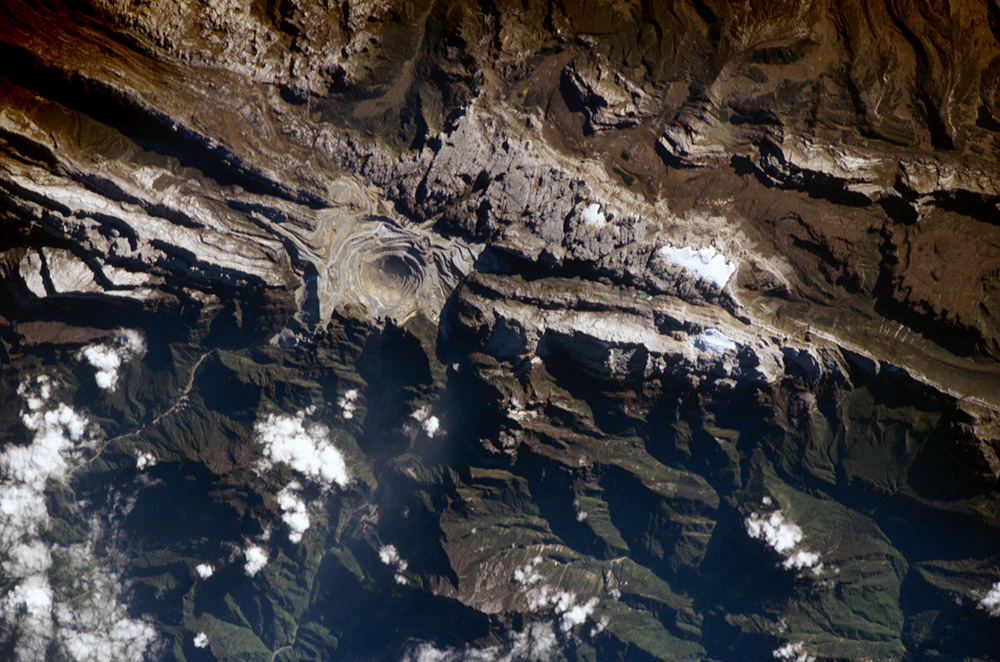Armed separatists occupy villages near Freeport’s Indonesia mine

Armed separatists have occupied five villages in Indonesia’s Papua province, threatening to disrupt Freeport-McMoRan Inc’s giant Grasberg copper mine, which has already been hit this year by labor unrest and a dispute over operating rights.
A state of emergency has been declared and around 300 additional security forces have been deployed to the mining area of the eastern province after a string of shootings since Aug. 17 that killed one police officer and wounded six.
“They want to disrupt Freeport’s operations,” said Suryadi Diaz, a spokesman for the Papua police.
“(Freeport) is rich but they are poor, so they just want justice,” Diaz said, adding that the militants were a splinter group of the separatist Free Papua Movement (OPM).
Freeport Indonesia spokesman Riza Pratama said the company was “deeply concerned” about security and was using armored cars and helicopters to ferry workers to and from the Grasberg mine in the province’s Mimika regency.
He said attacks had been launched along the road near the town of Tembagapura, about 10 km (6 miles) from the mine, where families of employees – including expatriates – live.
He added that so far there had been no impact on production and shipments from Grasberg, the world’s second-biggest copper mine.
Last year Freeport Indonesia contributed about a quarter of the parent company’s global sales of 4.23 billion pounds (1.92 million tonnes) of copper.
Arizona-based Freeport, the world’s largest publicly listed copper producer, has been grappling with labor problems at Grasberg and a lengthy dispute with the Indonesian government over rights to the mine.
SHOTS FIRED
The mine has also be dogged by major concerns over security due to a low-level conflict waged by pro-independence rebels in Papua for decades. Between 2009 and 2015, shootings within the mine project area killed 20 people and wounded 59.
Papua and neighboring West Papua provinces make up the western half of an island north of Australia, with independent Papua New Guinea to the east. The provinces have been plagued by separatist violence since they were incorporated into Indonesia after a widely criticized U.N.-backed referendum in 1969.
President Joko Widodo has sought to ease tension in the two provinces by stepping up investment, freeing political prisoners and addressing human rights concerns.
Police spokesman Diaz said around 1,000 local residents and migrant workers who pan for gold in Mimika were being prevented by the separatists from leaving the five villages.
Security forces had entered the occupied area on Thursday, police and military sources told Reuters, but it was not clear if they had been able to evacuate any of the residents.
“We are trying to maximize protection for the community … because people have been raped and some have had goods stolen,” Papua Police chief Boy Rafli Amar told Reuters.
The water supply of Tembagapura town had also been contaminated with kerosene, Boy said, but police had not been able to ascertain if it was an act of sabotage by the same group.
Andreas Harsono of Human Rights Watch said police statements on the matter “should not be taken for granted, due to decades of independent journalists’ restrictions in Papua.”
“JUST WILD THIEVES”
In a video purported to come from the National Liberation Army (TPN-OPM), part of the OPM group, dated Sept. 29, a guerrilla action coordinator named as Joni Beanal reads out an open letter warning of attacks on Freeport in order “to destroy it”.
“The main reason for the integration of Papua into Indonesia was a conspiracy by America and Indonesia in the interests of mining exploitation by Freeport MacMoran in Papuan soil,” the coordinator said in the video seen by Reuters.
Reuters was not able to verify the authenticity of the video. Papua police spokesman Diaz dismissed the recording as “old”. Freeport spokesman Pratama declined to comment on the matter.
Papua Military Commander Major General George Elnadus Supit said the TPN-OPM posed no significant threat and were “just wild thieves who are perhaps being used by a separatist group”.
Concord Consulting group warned that a harsh crackdown on the militant group could backfire.
“Militants in Mimika will be able to hide among the local population – many of whom share their rejection of Indonesian rule,” the security consultancy said in a note on Wednesday.
Freeport contributed $20 million toward Indonesian government-provided security protecting workers and infrastructure in 2016, about one-third of its local security budget.
The company paid $668 million to the Indonesian government last year in income taxes, royalties and export duties, making it one of the country’s single largest taxpayers.
The Panguna copper and gold mine in neighboring Papua New Guinea was abandoned in 1989 after a campaign of sabotage by the rebel Bougainville Revolutionary Army.
Echoing the situation in Papua, there was deep resentment among the indigenous Bougainville people about the wealth going to the Papua New Guinea central government and the mine’s then operator, Conzinc Riotinto of Australia Ltd, a forerunner of Rio Tinto.
More News
Contract worker dies at Rio Tinto mine in Guinea
Last August, a contract worker died in an incident at the same mine.
February 15, 2026 | 09:20 am
{{ commodity.name }}
{{ post.title }}
{{ post.date }}




Comments